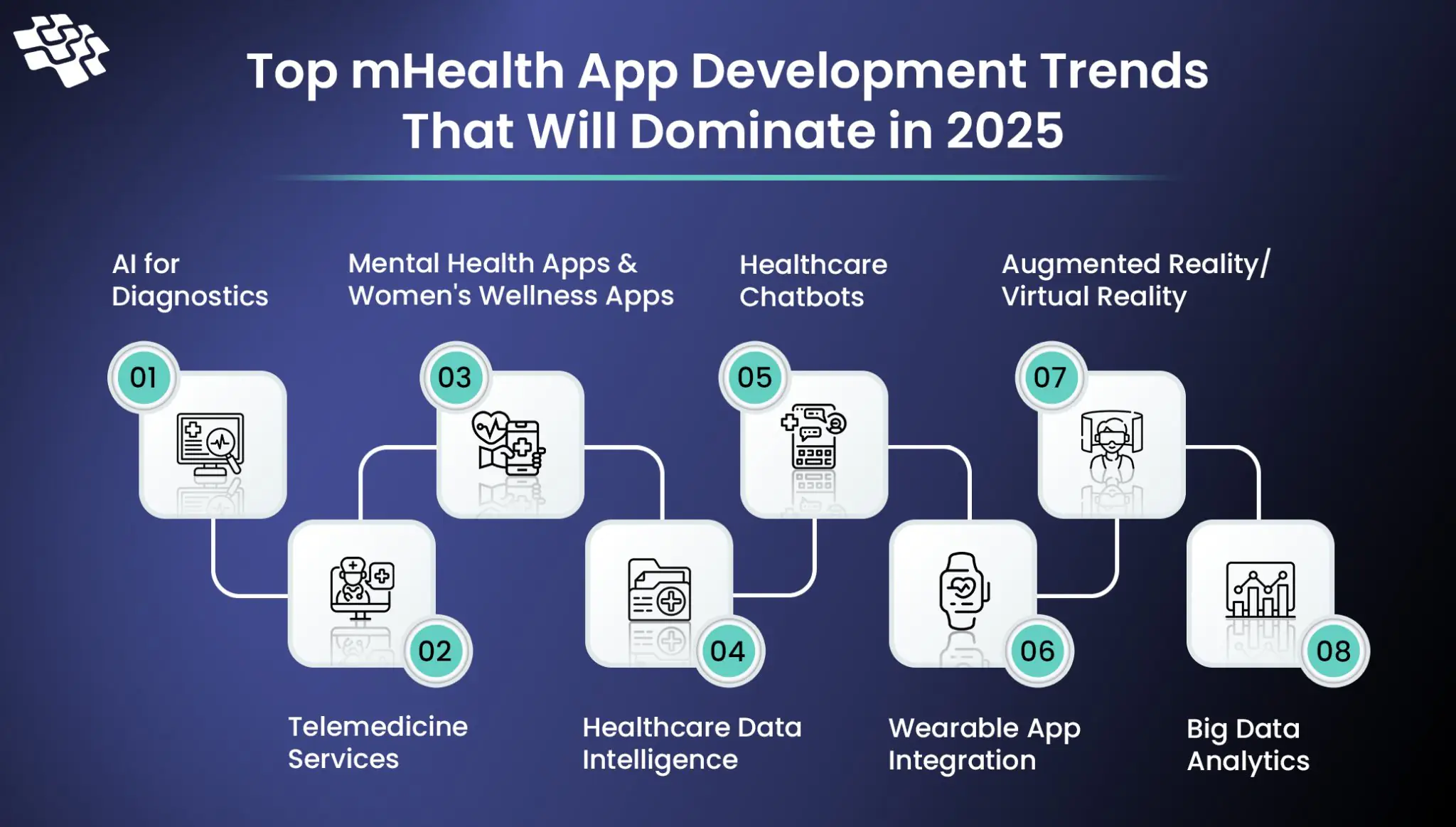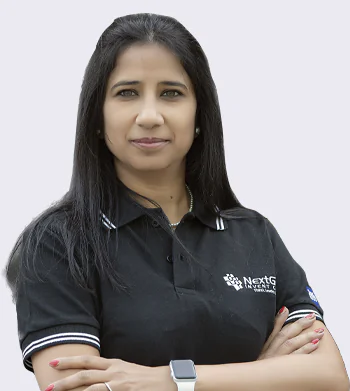Top mHealth App Development Trends That Will Dominate in 2026
It is anticipated that the use of mobile apps for healthcare will continue to grow, particularly as the sector is transformed by advancements in wearable technology integration, real-time health monitoring, and AI-driven diagnostics.
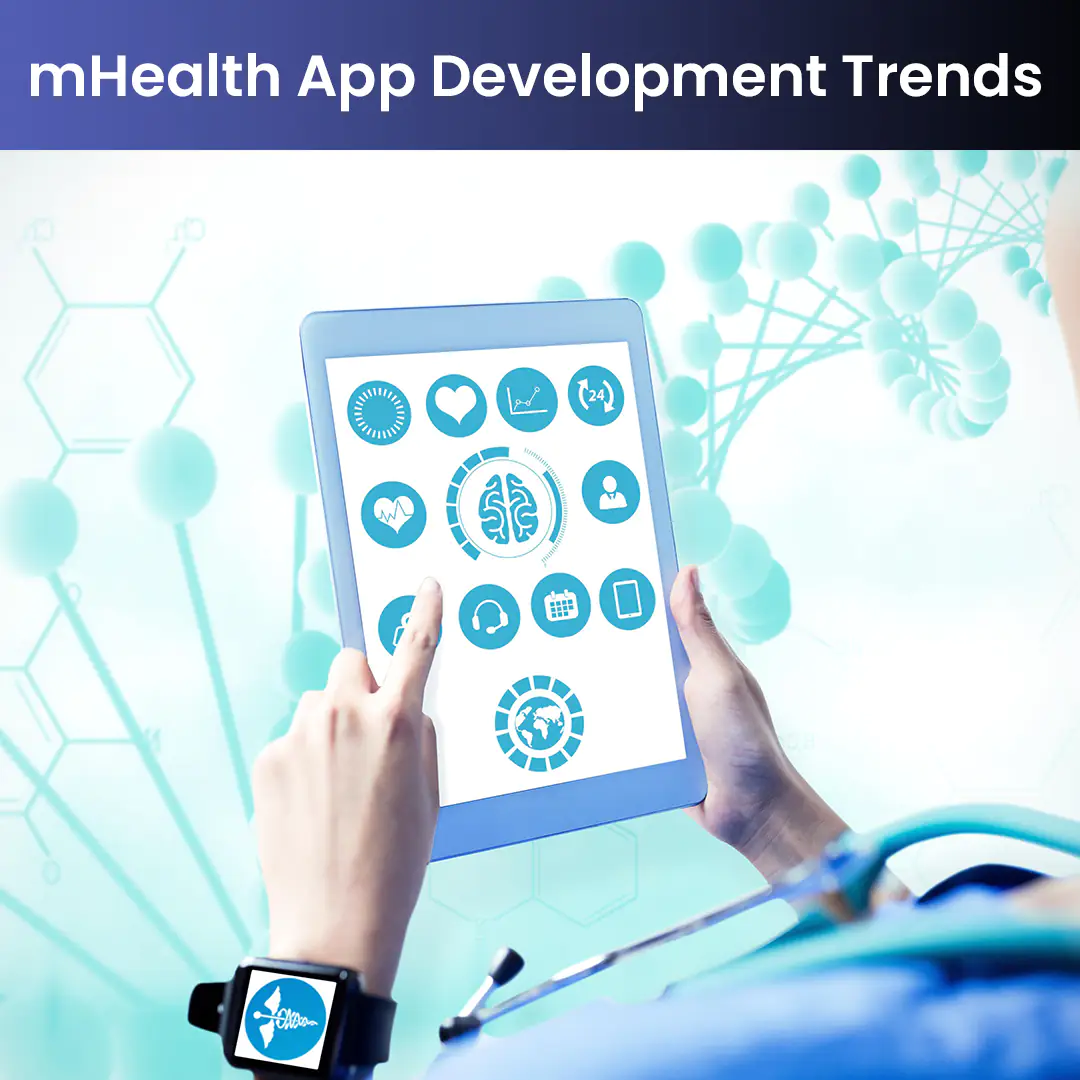
Looking for Real-Time Health Monitoring? We Develop Advanced Software to Help You Deliver Instant and Accurate Data
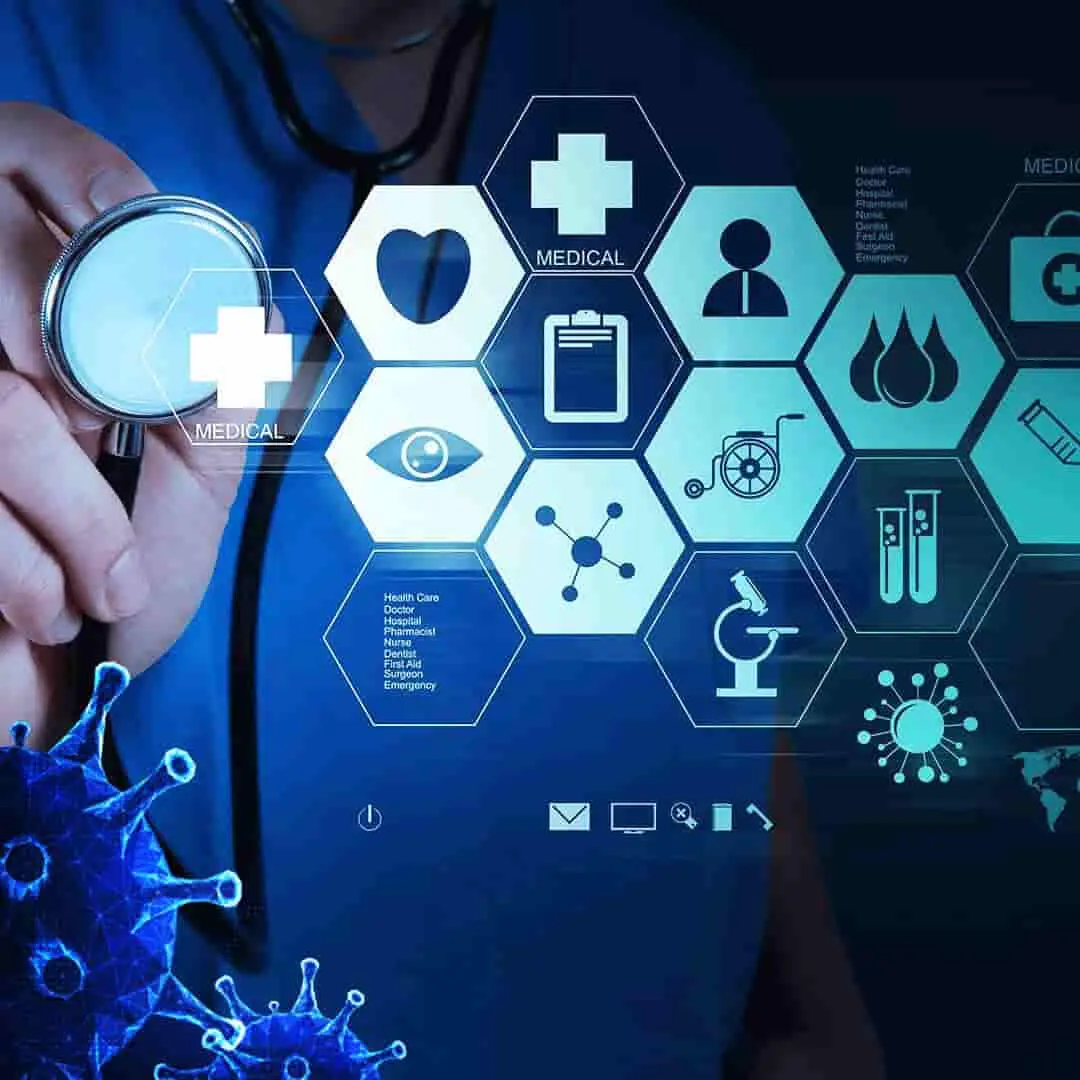
“The increasing usage of mHealth apps is a significant factor contributing to the market growth. These apps provide opportunities to record health-related data, monitor health, conduct online consultations, manage chronic conditions, and offer other features. Healthcare providers can reduce appointment costs by utilizing mHealth apps that lower the risk of patient rehabilitation. Patients can utilize these types of apps for medication reminders and recovery instructions instead of staying in a medical facility post-surgical discharge.”- Fortune Business Insights
What are mHealth Apps: Overview
But first, what is mHealth? It stands for mobile health. This idea suggests medical services that consumers can obtain via mobile devices, such as:
- Smartphones
- PDAs
- Wearable Devices
Mobile gadgets primarily enable individuals to collect health-related data and transmit it to professionals for additional evaluation. One subcategory of eHealth is mHealth. Speaking of these, as they are frequently confused, we should explain each one separately. mHealth refers only to mobile devices used with traditional medical procedures. The majority of mHealth apps are patient focused. On the other hand, enterprise-level software for hospitals, lab systems, patient administration programs, etc. are all included in the broader concept of eHealth.
Other noteworthy benefits of mHealth applications include increased convenience and quick service delivery. In certain parts of the world, people might not have the money to go to doctors and get regular checkups. They do, however, own a few mobile gadgets. Numerous self-help applications offered by mHealth significantly raise living standards and reduce the number of fatal consequences. The total annual investment in mHealth is $1391 million.
Benefits of Healthcare Apps for Patients and Doctors
Patients and healthcare practitioners can benefit from custom AI mHealth app development, which also advances the healthcare sector overall. Let’s review some advantages that a mHealth app can offer.
Benefits For Patients
Let’s move on to the advantages patients experience from the development of healthcare mobile applications.
- Higher Quality Care: With all the technology available to clinicians, patients can obtain customized health programs that consider their situation.
- Better Control Over Health Data: Patients can share their medical records with other hospitals by exporting them. Solutions for healthcare app development ensure that this process is simple and safe.
- Engagement: Lastly, e-health solutions empower patients to take an active role in their treatment by giving them greater control over it.
Benefits For Doctors
The process of creating a health app takes a lot of time and money. How can we demonstrate its worth to stakeholders and investors?
- Better Hospital & Equipment Management: Health organizations can track their equipment in real time and adjust its use based on the Internet of Things and other technologies. For instance, we could create a hospital mobile app that tracks the whereabouts of every ventilator on the property.
- Faster Decision Making: As a result, physicians can serve more patients overall and spend more time with them.
- Improved Communication between Professionals: Platforms for telemedicine healthcare applications enable physicians to consult with one another from any location.
Struggling with Data Security in mHealth Apps? Our Software Solutions Ensure Robust Protection and Compliance
Top mHealth App Development Trends That Will Dominate in 2026
Let’s now examine the mHealth app development trends that affect the solutions and our usage of them. In general, numerous industries, including the healthcare sector, have adopted innovative technologies in recent years. Therefore, it should come as no surprise that they have an impact on mobile development as well.
1. AI for Diagnostics
Artificial intelligence has put several industries, especially the healthcare sector, squarely in control. With its proposals for pharmaceutical and biotechnology startups, NLP in healthcare, robotic process automation, and clinical trial participant identifiers, artificial intelligence is predicted to upend the healthcare technology landscape as it moves toward greater intelligence between 2022 and 2028.
- When prompt medical attention is needed, artificial intelligence can be a big boon and aid in more accurate patient examinations.
- Even when medical personnel are unavailable, computer systems will be able to make choices on their own because of advanced AI technologies.
- Patients won’t have to go to clinics and hospitals frequently, which will undoubtedly result in lower medical expenses.
- Robotic Process Automation, an AI technology, can assist in streamlining many healthcare body operations, such as data entry, patient data analytics, early diagnosis, and health payments.
- AI-driven chatbots for collecting preliminary health-related information and evaluating symptoms to make a doctor’s appointment.
2. Telemedicine Services
In rural locations with little access to medical facilities, telemedicine can be an extremely useful and economical service. In addition to many other features, the telemedicine app development offers the ability to consult doctors, physicians, psychologists, and lactation consultants, schedule online consultations on demand, consult via video conference, generate e-prescriptions, and much more.
Patients who used telemedicine services or solutions for the following purposes were included in the telehealth survey:
- 66% for follow-up doctor consultations
- 49% for psychological therapy sessions
- 44% for chronic condition management
According to the GrandViewResearch analysis, the size of the worldwide telehealth market was estimated at USD 83.5 billion in 2022 and is anticipated to grow at a CAGR of 24% between 2023 and 2030. In fact, telemedicine is gaining popularity among patients, and even doctors believe it can provide quicker and more effective treatment results.
3. Mental Health Apps & Women’s Wellness Apps
According to a WHO survey, one out of every eight persons worldwide suffers from one or more mental disorders, including those related to thinking, emotions, regulation, depression, stress, anxiety, behavior, sleep, etc. Additionally, incidences of anxiety and depression disorders have risen by 26% and 28%, respectively, during the COVID-19 pandemic. Nonetheless, there are strategies to address these mental illnesses, such as using applications that promote mindfulness exercises or attending therapy sessions with psychiatrists.
According to one report, women make up 50% of healthcare app users worldwide and are the ones who use them more than 75% of the time. When it comes to their health and well-being, modern women want modern answers. When they are going through important times like the menstrual cycle, pregnancy, and postpartum period, the AI mHealth app might have features like a customized food plan, exercise, meditation, and tracking the cycle and ovulation period, among many others.
4. Healthcare Data Intelligence
This trend is due to the enormous volumes of data gathered in the medical field. Without the insights you cannot genuinely gain from this data, it is worthless. To turn it into something worthwhile, you therefore want assistance. Numerous data technologies can help in this situation. We specifically want to draw attention to how mobile technology is integrated with data analytics and business intelligence solutions. Because they let healthcare workers access and engage with data intelligence solutions while on the go, they provide a thorough approach to data-driven decision-making.
For instance, mobile interfaces allow researchers to examine trends in their fields, managers to keep an eye on hospital performance, and doctors to study patient analytics. It’s also critical to remember that big data analytics makes sense in the modern world. We may anticipate that there will be an increasing amount of generated data, and robust algorithms can assist in processing it.
Therefore, it is currently feasible to change the way we receive and provide medical care services through technologies like IoT, AI, AR, and VR. We can observe the emergence of:
- Telemedicine
- RPM Approach
- Wearables Adoption
- Healthcare Consumerization
These fields will continue to support mHealth software and present new opportunities throughout the coming years.
Further Read: Impact of Data-driven Innovation in Clinical Pharma
5. Healthcare Chatbots
Customer service standards are being reshaped by AI-driven chatbots, which are becoming increasingly popular on websites due to their machine-learning capabilities, quick responses, and 24/7 availability. Healthcare chatbot apps are positioned to write a new future, from answering consumer questions to assisting with mental health therapy. Nevertheless, only a small percentage of mobile apps presently use chatbots, despite their revolutionary potential.
The latest developments in chatbot technology:
- Hyper Personalized Responses
- Voice Recognition Chatbot Technology
- Data Analysis
- Smarter Bots
Healthcare chatbots are becoming more popular as businesses and consumers favor these technologies. Because chatbots can converse with consumers in real language and offer personalized experiences, they are unquestionably at the forefront of mHealth app development trends.
6. Wearable App Integration
Wearable technology has gained popularity in the fashion sector. But they are more useful than fashionable. With features like health alerts and heart attack prevention, these devices open new possibilities for the fitness and medical industries. However, wearables still haven’t realized their full potential despite their existing influence. Wearables are becoming more powerful and appealing to a wider audience due to developments in data processing, battery life, continuous sensors, and downsizing.
Key advancements in the wearables industry to keep an eye on:
- Integrating IoT
- Wearable GPS Technology
- Contactless ePayments
- Glucose Trackers
Mobile apps are essential for dealing with increasingly complex wearables because they provide data visualizations, tailored insights, and practical suggestions.
Check our Success Story: Voice Enabled, AI-Powered Healthcare Chatbot
7. Augmented Reality/Virtual Reality
AR will enable healthcare professionals to visualize complex medical data in real-time, overlaying digital information onto the physical environment, which can assist in diagnostics, surgery planning, and treatment procedures. For patients, AR can deliver immersive tutorials for medical procedures or rehabilitation exercises, improving engagement and adherence.
VR, on the other hand, will revolutionize telemedicine by offering virtual consultations in fully immersive environments. VR can also be used for therapeutic purposes, such as pain management and mental health treatments, by creating controlled, interactive environments that help alleviate stress and anxiety. With improved hardware and software capabilities, AR/VR technologies will become crucial in personalizing and enhancing healthcare delivery.
8. Big Data Analytics for Personalized Insights
To analyze patient data and produce useful insights, big data analytics might be quite important. Big data analytics can be used in mHealth apps to efficiently manage all data-related procedures. For instance, by maintaining a record of hospital employees and physicians, big data can assist in the management of hospital resources. Managing electronic health records is another significant application of big data.
With the use of big data, mobile health apps can save and analyze all relevant data, such as the patient’s height, weight, and medical history. By offering robust and precise insights in real-time, we may anticipate that this technology will eventually provide more individualized insights.
Key Challenges in mHealth App Development
If you’re thinking about contacting an AI healthcare mobile app development services company, you should know what challenges you might encounter.
- Compliance Issues: The applicable laws in effect in the selected jurisdiction must be complied with by all healthcare applications. There are strict regulations governing this area of software solutions. PHI and HIPAA are the regulations. When you want to create an app for a worldwide user base, the biggest obstacle is making sure your solution complies with all national laws.
- Security Issues: Since all healthcare mobile apps handle sensitive data, hackers find them appealing. The tools and measures that will be used to ensure data protection should be considered early in the development process by your team. Data encryption techniques and two-factor authentication are two of the most effective ways to restrict access to the app and safeguard critical data.
The Future of Healthcare: Advanced App Development
Your current understanding of healthcare technologies will change in the future. After 2024 and beyond, innovations will occur. In the upcoming years, technologies that are useful now will be fully utilized, pushing the frontiers of the healthcare industry. The following technologies will develop over time to enhance healthcare services.
- Generative AI in Healthcare: People’s lives are already starting to change due to generative AI. However, this is just the start. Because of its unparalleled efficiency, this technology has the potential to spur innovation in the healthcare industry.
- Digital Twins: Digital twin technology is the way of the future for medical care. Even though a lot of hospitals and healthcare facilities currently use this technology, its full potential has yet to be realized. Data analytics is used by digital twins to optimize treatment. It will be easier to detect diseases in the future.
- Harnessing Big Data: Big data makes it easier for data analysts to extract insightful information. Large volumes of patient data can be analyzed by healthcare professionals to find trends, tailor treatments, and forecast results.
How Can NextGen Invent Help You Stay Ahead With mHealth App Development Trends?
NextGen Invent stands at the forefront of custom AI mHealth app development, offering tailored solutions that prioritize user experience while harnessing the power of innovative AI technologies. Our team follows a meticulous, step-by-step process to ensure every app not only meets but exceeds expectations. By focusing on seamless user workflows and integrating advanced AI capabilities, we create intuitive, efficient, and scalable mobile health applications.
We specialize in providing AI healthcare mobile app development services that are designed to solve real-world healthcare challenges. From enhancing patient engagement to streamlining clinical workflows, our developed software helps improve overall health outcomes. With a focus on innovation, security, and performance, we ensure your app is future-ready.
Ready to enhance your healthcare app? Contact us today to discuss how we can transform your vision into reality and drive impactful results in the healthcare industry.
Need Personalized Healthcare Features? We Build Tailored mHealth Apps to Enhance User Experience and Engagement
Frequently Asked Questions About Data-driven Innovation in Clinical Pharma
Related Blogs
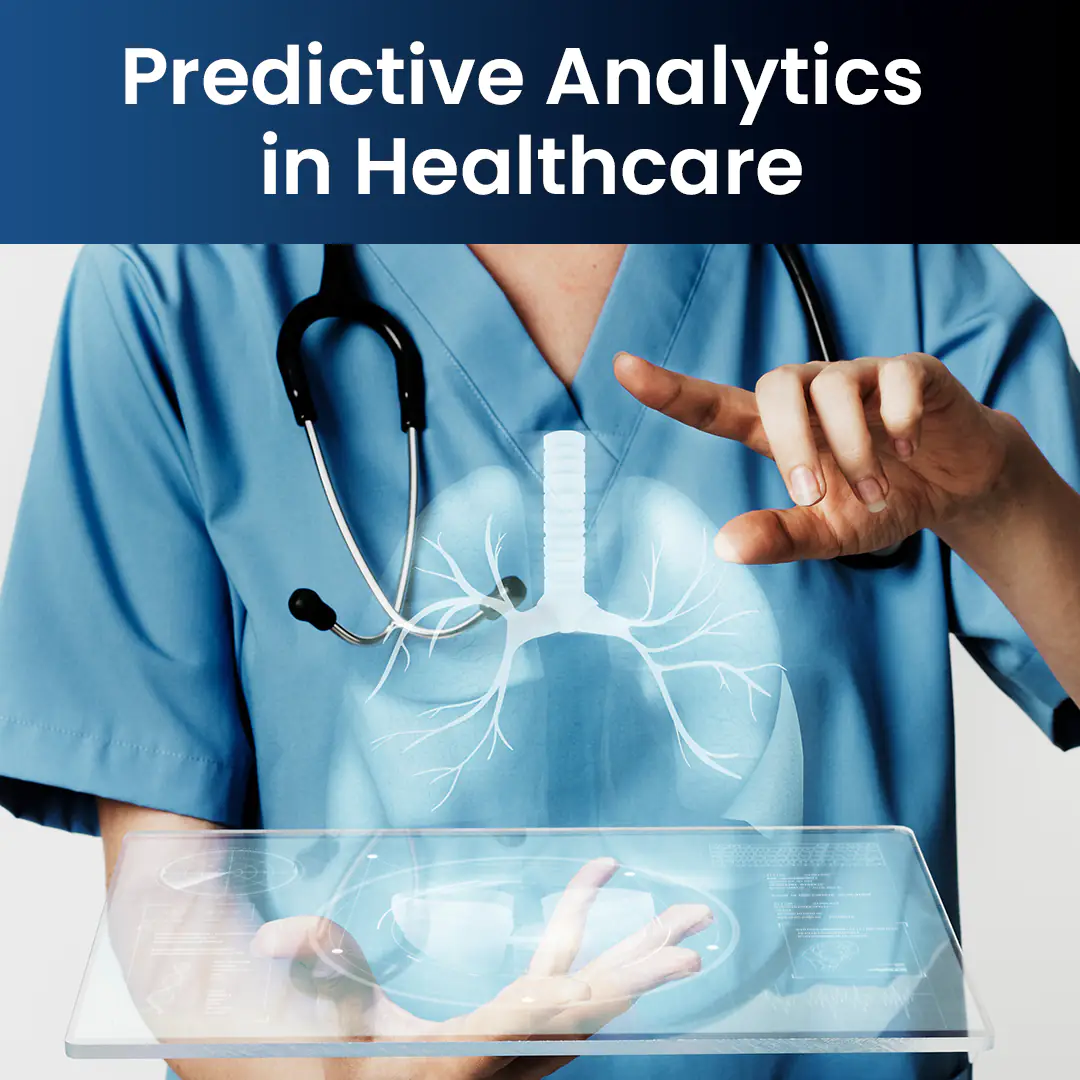
How is Predictive Analytics in Healthcare Revolutionizing It
Imagine if medical professionals could foresee your health problems before they become critical. Predictive analytics in healthcare is real and not just science fiction.
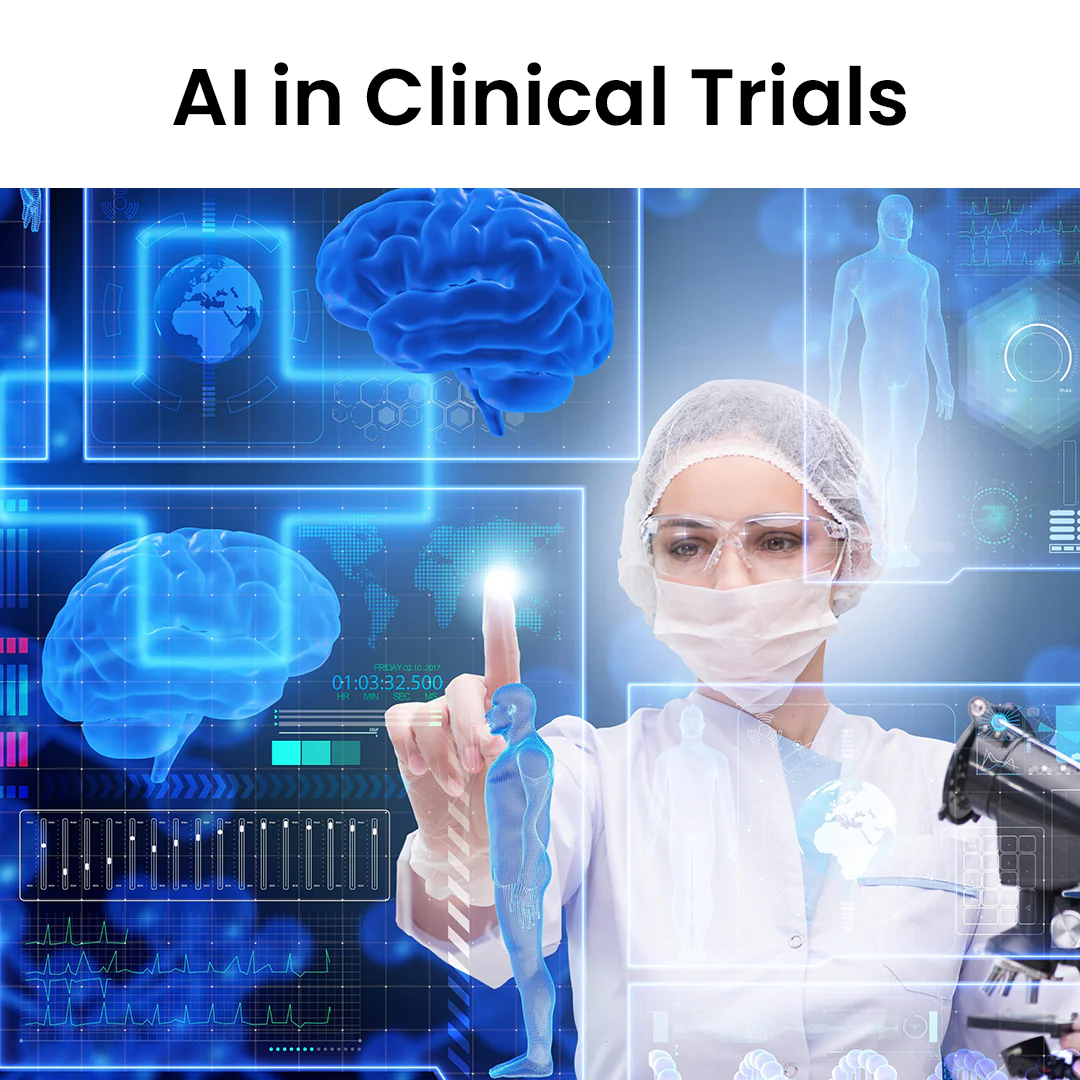
How AI in Clinical Trials is Improving Patient Outcomes
The past year has seen a lot of coverage of AI because of its potential applications in business, logistics, technology, healthcare, and other fields. What about clinical research, though?
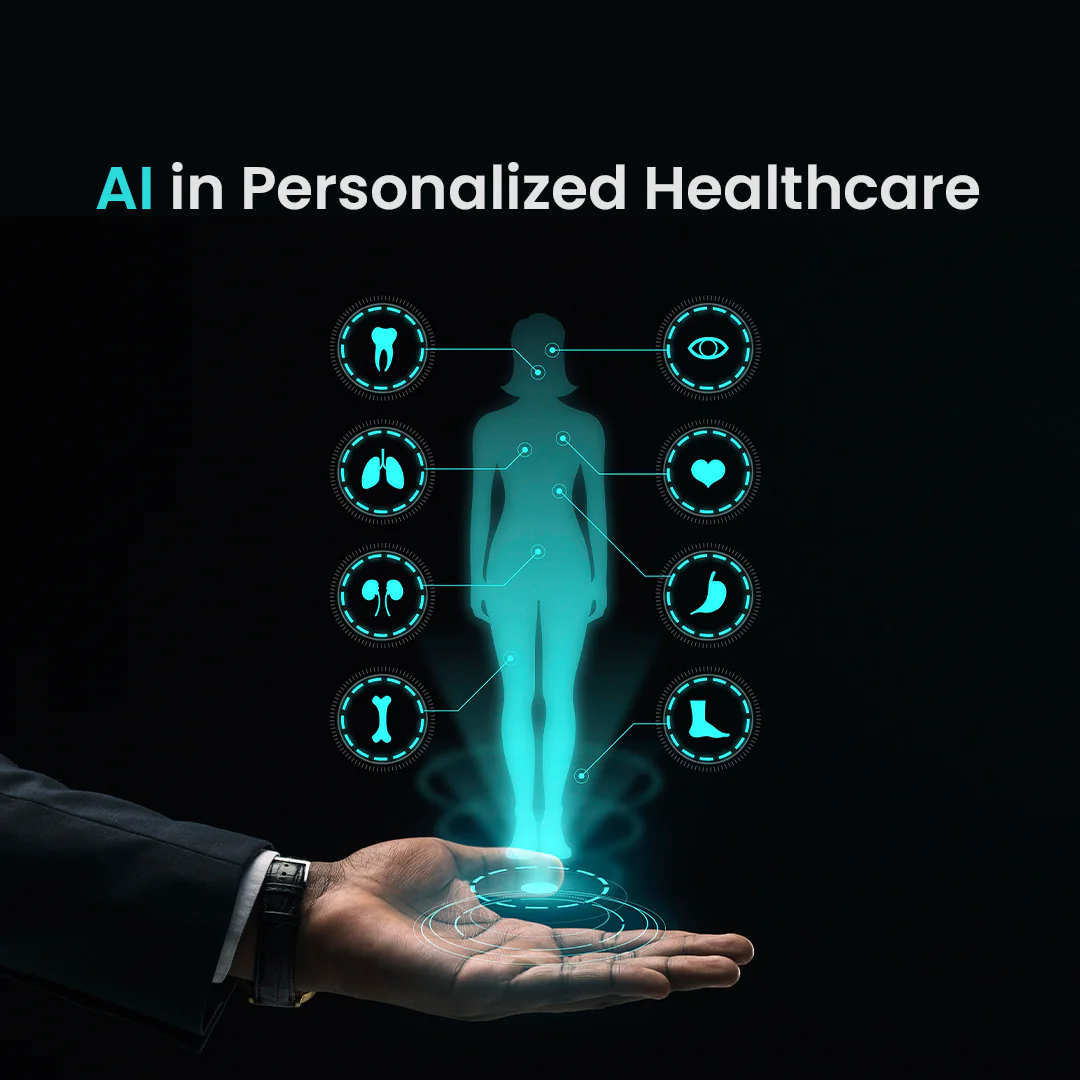
The Role of AI in Personalized Healthcare
The World Economic Forum projects that by 2030, AI in personalized healthcare will be valued at $188 billion worldwide. Due to the increased healthcare needs of the aging population...
Stay In the Know
Get Latest updates and industry insights every month.
